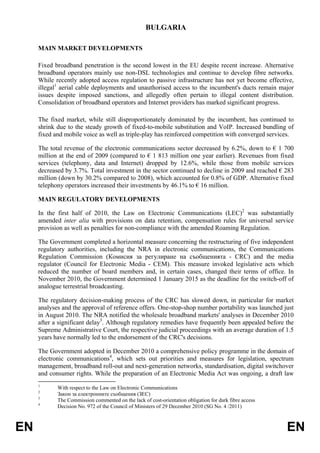Fixed broadband penetration is low in Bulgaria despite recent increases. Alternative operators develop fiber networks while illegal cable deployments and unauthorized access to incumbent infrastructure remain issues. The fixed market has shrunk due to mobile substitution and VoIP while bundling of services has increased competition. Regulators aim to improve broadband access through infrastructure sharing but face challenges from permitting delays and inconsistent laws.







